| SMHRIC |
| Jan 21, 2015 |
| New York |
|
Displaced herders took to the streets in
Shiliin-hot City, demanding the Chinese authorities return them to
their homes and grazing lands. Riot police and Public Security
personnel came to crackdown on them (SMHRIC video)
|
|
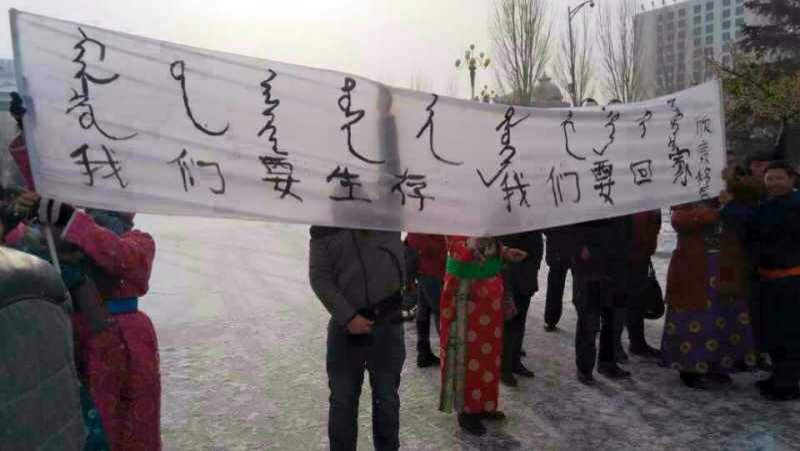 |
|
|
Shiliin-hot herders
holding a banner reading "Defend herders' rights. We want survival.
We want to return home" (SMHRIC photo)
|
|
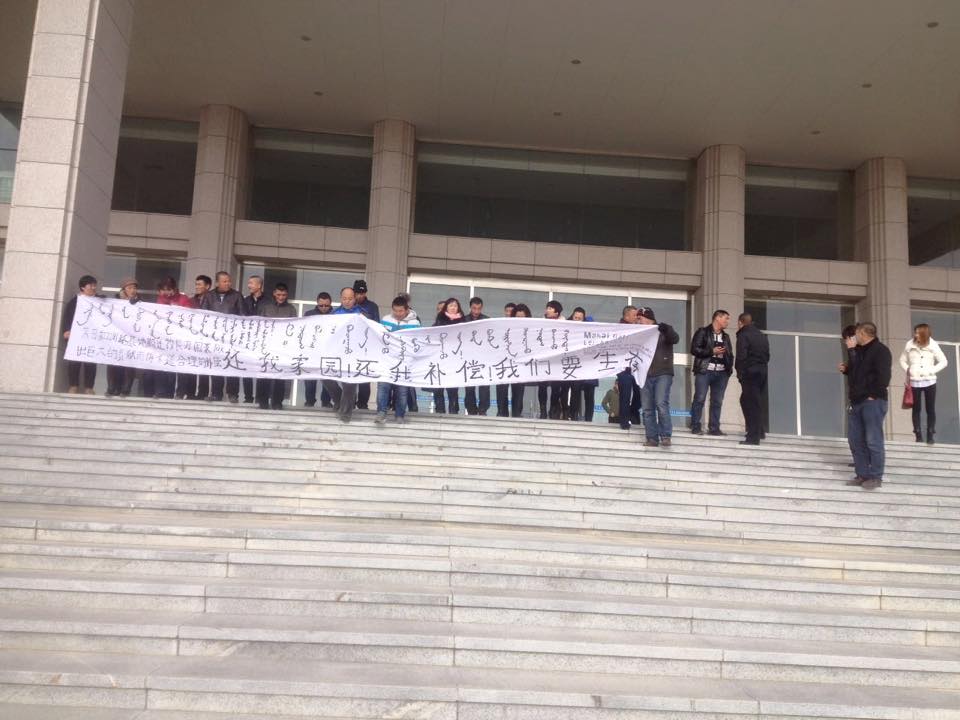 |
|
|
Herders from Sunid Right Banner holding a
banner reading “Return our home, return our land, return our
compensation, we want survival” in the middle and “We displaced
herders from Zureh Military Training Base area have paid a heavy
price to the state, yet no adequate compensation has been given to
us." (SMHRIC photo)
|
|
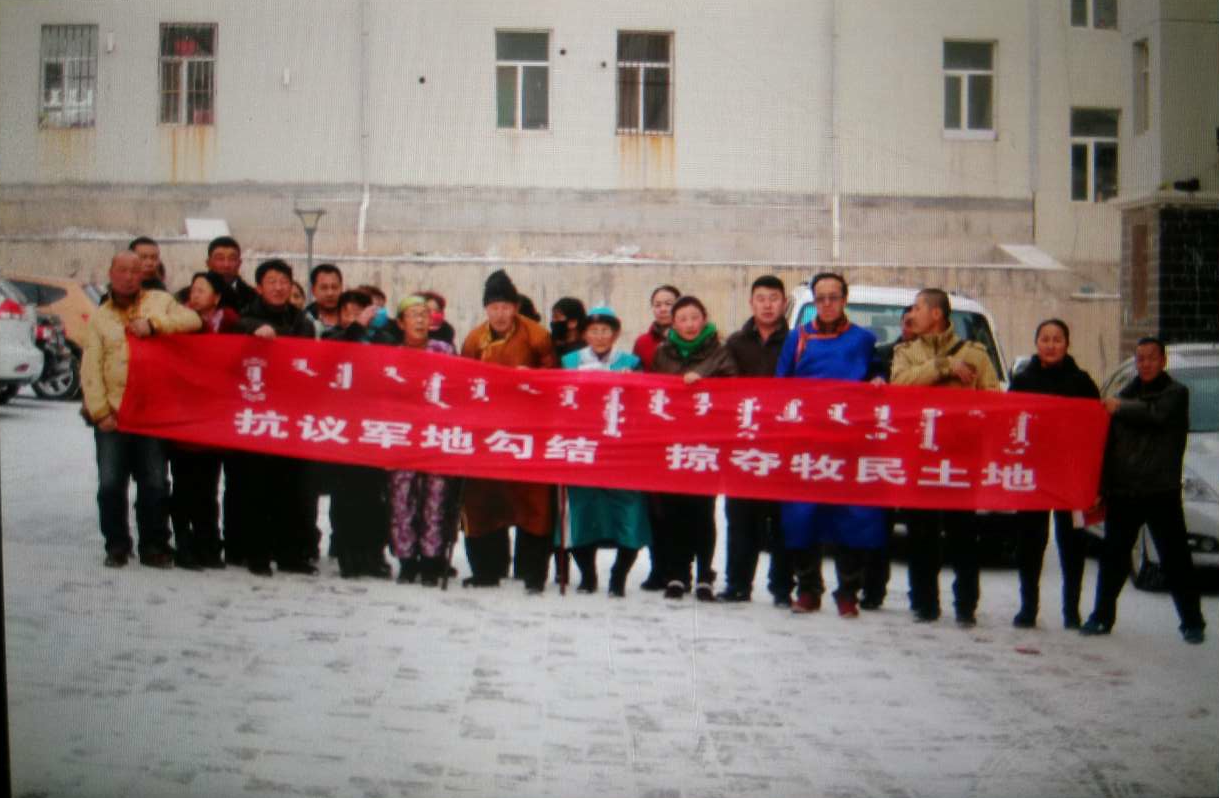 |
|
| Displaced herders staging protest in Beijing against "Military and local authorities' ganging up and plundering of herders' lands". (SMHRIC photo) |
Shiliin-hot Protest
More than 60 displaced Mongolian herders from Xin Kang Immigration Village (“xin kang yin min cun” in Chinese) near Shiliin-hot City staged a protest in front of the municipal government yesterday. With banners reading “We want survival! We want to return home! Defend herders’ rights!” these herders demanded the Chinese authorities return them to their homes and grazing lands.
Nearly a hundred riot police and local Public Security personnel with dozens of police vehicles arrived on the scene and attempted to disperse the herders by brute force. Protesters’ banners and cell phones used to take pictures of the scene were confiscated. At least one elderly Mongolian herdswoman was beaten down on the ground during the clash. A video clip the Southern Mongolian Human Rights Information Center (SMHRIC) received from the herders shows that despite the use of force, protestors managed to hold high a long banner and continued to march toward the municipal government building.
According to information received from the herders, 200 herder households from neighboring Abagnar Banner were forcibly displaced to Xin Kang Immigration Village in 2002 and 2004 respectively in the name of the “ecological migration” policy.
“Each household was thrown into a two-room small house regardless of the size of the household,” Ms. Gowaa, one of the protestors, told SMHRIC over the phone, “our houses and fences in our land were bulldozed over immediately after we left. Our original household registration cards stating our home place were suspended.”
“Surrounded by heavily polluted power plants and coal refineries, we helpless 200 herder households are not only barred from returning home, but also denied the right to go elsewhere to seek the means to make a living. The government has threatened to demolish our two-room houses if we go out to work elsewhere,” Gowaa added.
Sunid Right Banner Protest
Another group of about 20 Mongolian herders from western Southern Mongolia’s Sunid Right Banner marched toward the Banner Government building in Saihantal Township (“sai han ta la zhen” in Chinese) yesterday to protest against the Zureh (“zhu ri he” in Chinese) Military Training Base’s illegal occupation of their grazing lands and the authorities’ failure to redress the displaced herders’ losses.
A long banner written in both Mongolian and Chinese read “Return our home, return our land, return our compensation, we want survival” in the middle and “We displaced herders from Zureh Military Training Base area have paid a heavy price to the state, yet no adequate compensation has been given to us.”
According to Chinese official reports, the Zureh Military Training Base is the largest military training base in China occupying more than 1,066 square kilometers grazing lands of Sunid Right Banner and neighboring Durbed Banner. A total of 708 Mongolian herder households consisting of 2,907 individuals were forcibly relocated from their grazing lands to “immigration villages” near their respective Banner capitals to accommodate the expansion of this military base.
Neither proper compensation nor adequate housing were provided to the relocated herders. In an effort to halt the military base’s destruction of their grazing lands, local herders carried out multiple protests near the base and appealed to various levels of the government, including the central government. All appeals were ignored, and protesters were forcibly dispersed.
Beijing Protest
More than 70 Mongolian herders from Durbed Banner and Sunid Right Banner are still protesting in front of various branches of the Chinese Central Government in Beijing, demanding Chinese authorities halt the Zureh Military Training Base’s illegal occupation of the herders’ grazing land and redress the displaced herders’ grievances.
According to written appeals circulated via Chinese social media outlets, the main demands of the herders include the following:
1. End the illegal military and local government occupation and expropriation of herders’ grazing lands;
2. Conduct a thorough investigation by the central government into the Zureh Military Training Base’s land expropriation;
3. Halt the authorities’ forced and violent displacement of Mongolian herders from their lands;
4. Ensure that rural herders’ basic rights are not violated.
Mongolian herders elsewhere and intellectuals from Southern Mongolia and abroad organized via social media to show their strong support of the spreading herders’ protests. Prominent political activist Mr. Hada who was recently released from prison, his wife activist Ms. Xinna and long missing dissident writer Ms. Huuchinhuu also joined the campaign to voice their support of the herders’ rights.
At least a dozen herders, activists and their family members were questioned, warned and threatened not to speak to foreign news media or to spread information about the protest via social media. Mr. Almaz, a young activist and dissident in eastern Southern Mongolia’s Naiman Banner, had been detained for a week until he was released yesterday for rallying the Mongolians on the Internet to join the protests. His office was searched and laptop confiscated by the local police for “leaking state secrets” before his detention.
|
Herders protest in
Shiliin-hot (2015-01-20)
|
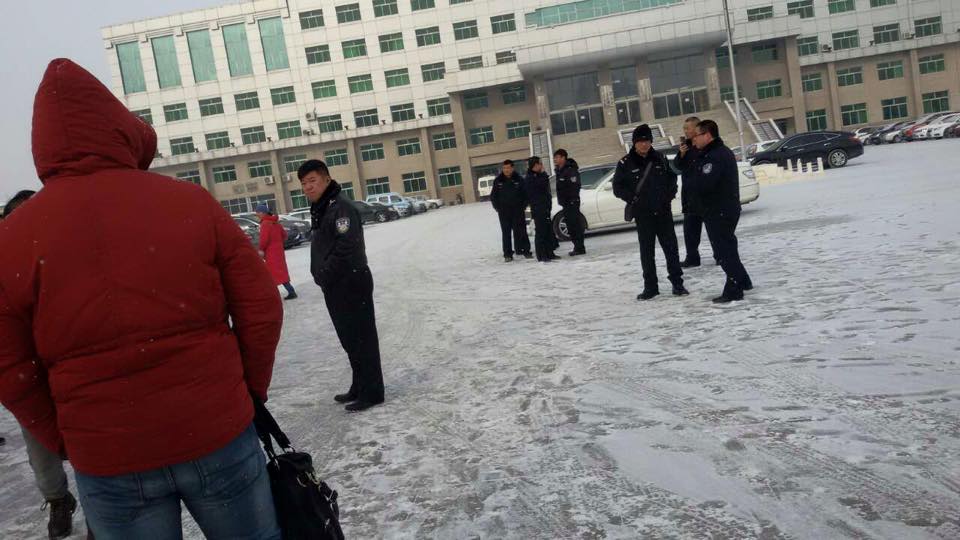 |
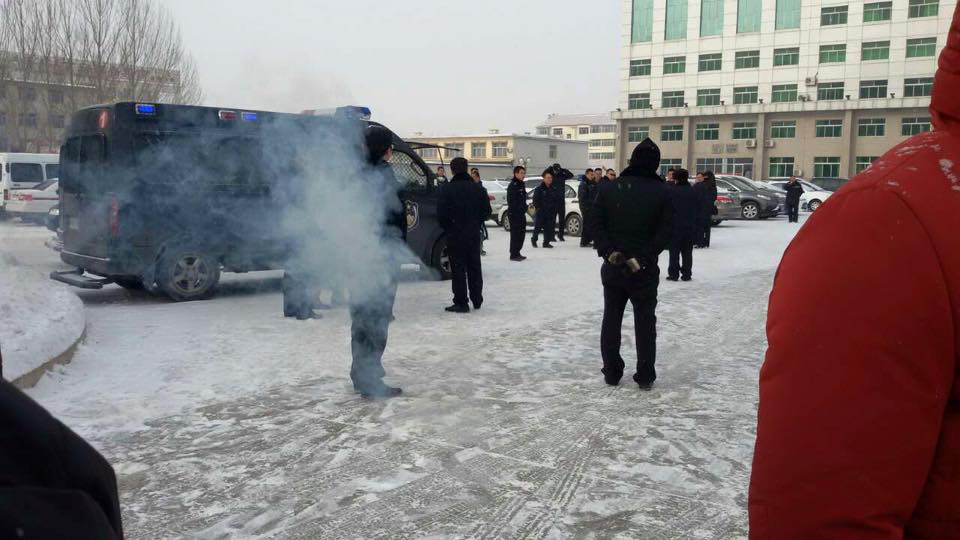 |
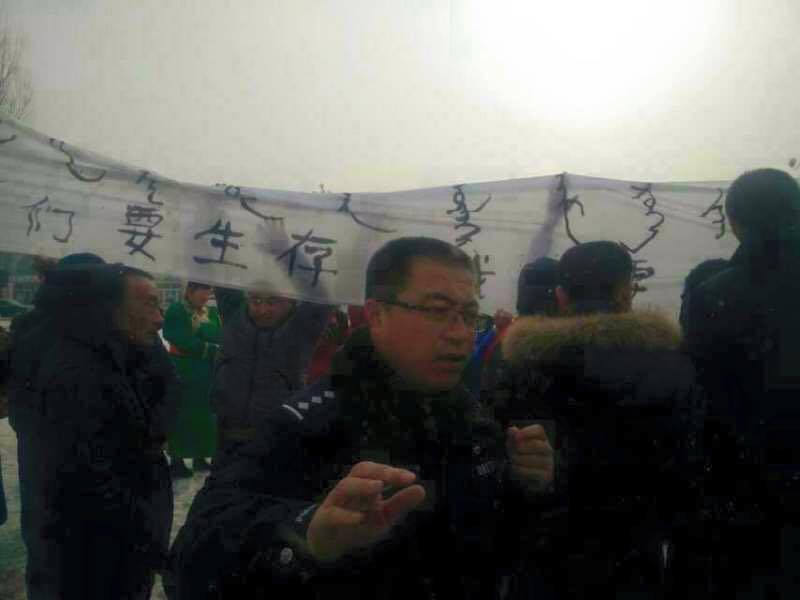 |
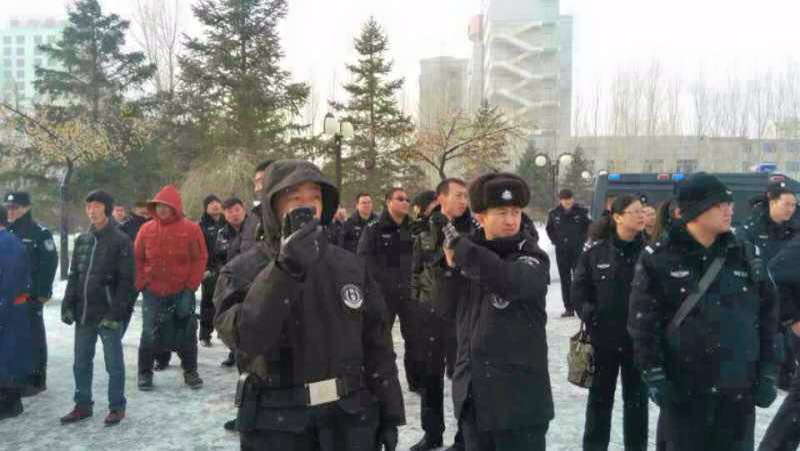 |
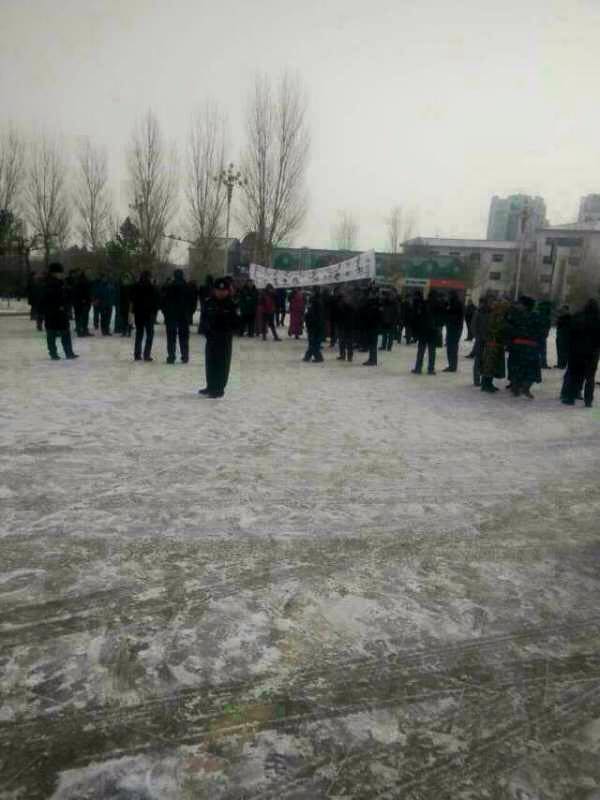 |
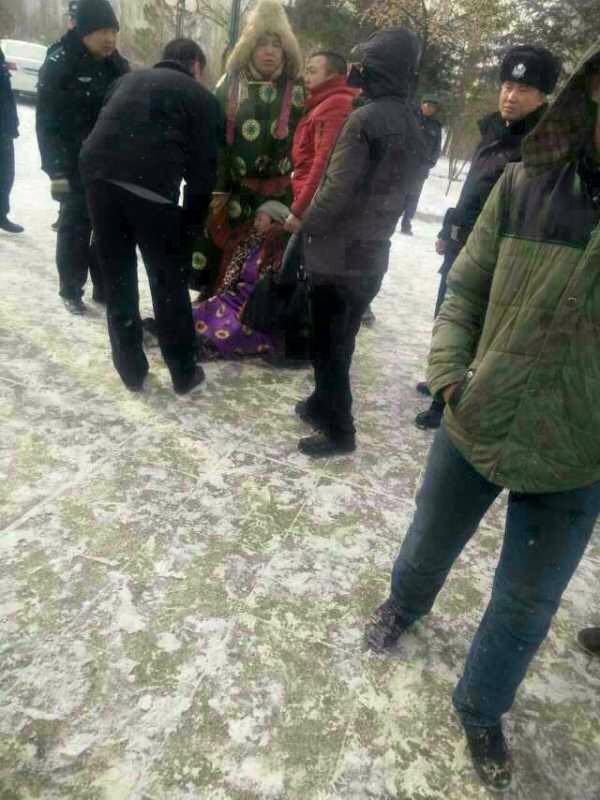 |
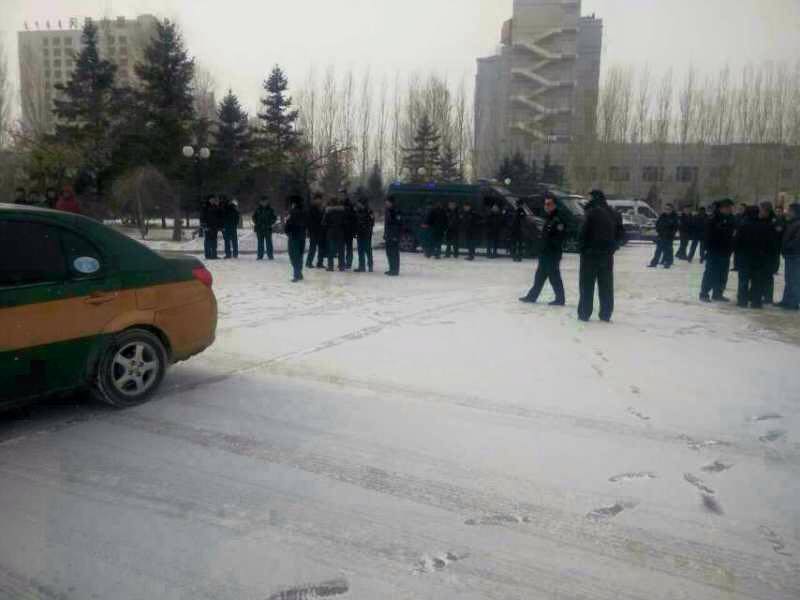 |
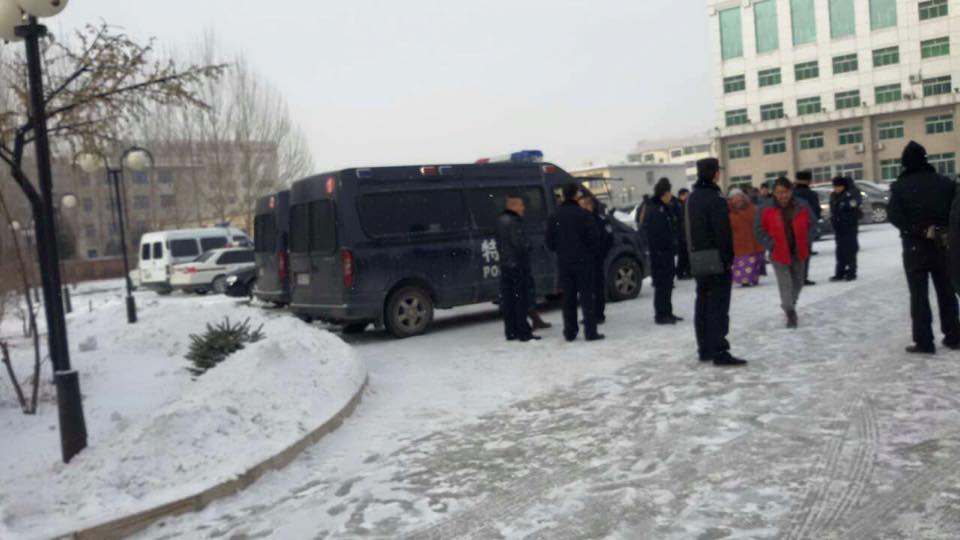 |
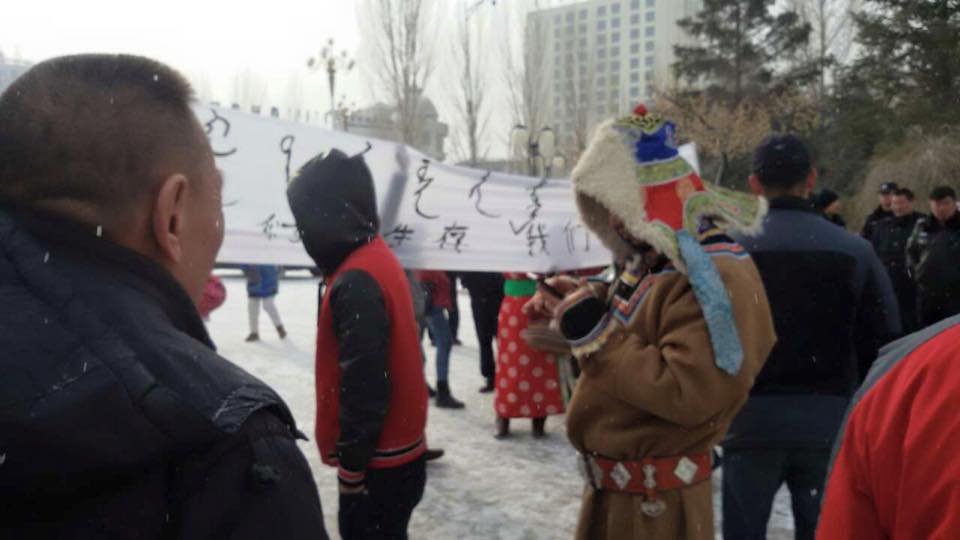 |
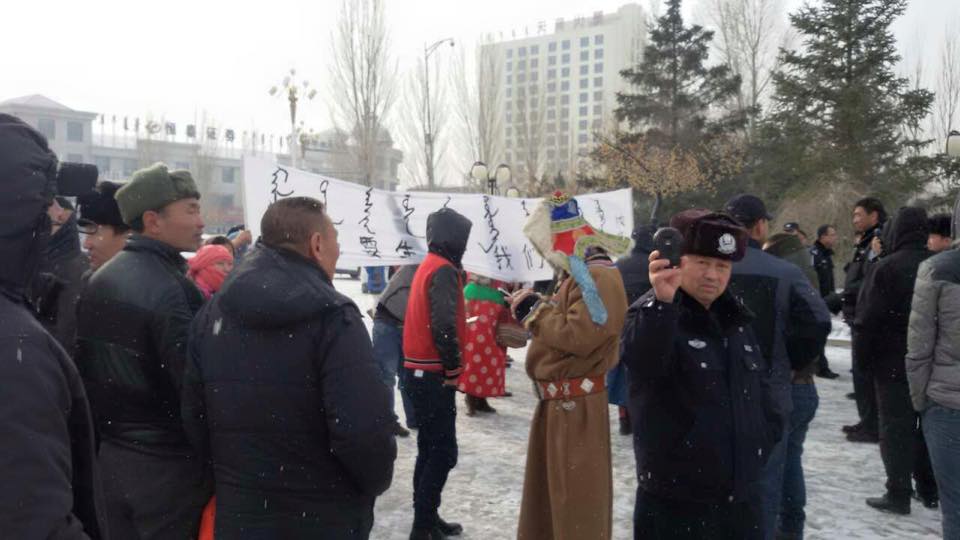 |
|
|
| Herders protest in Sunid Right Banner (2015-01-20) |
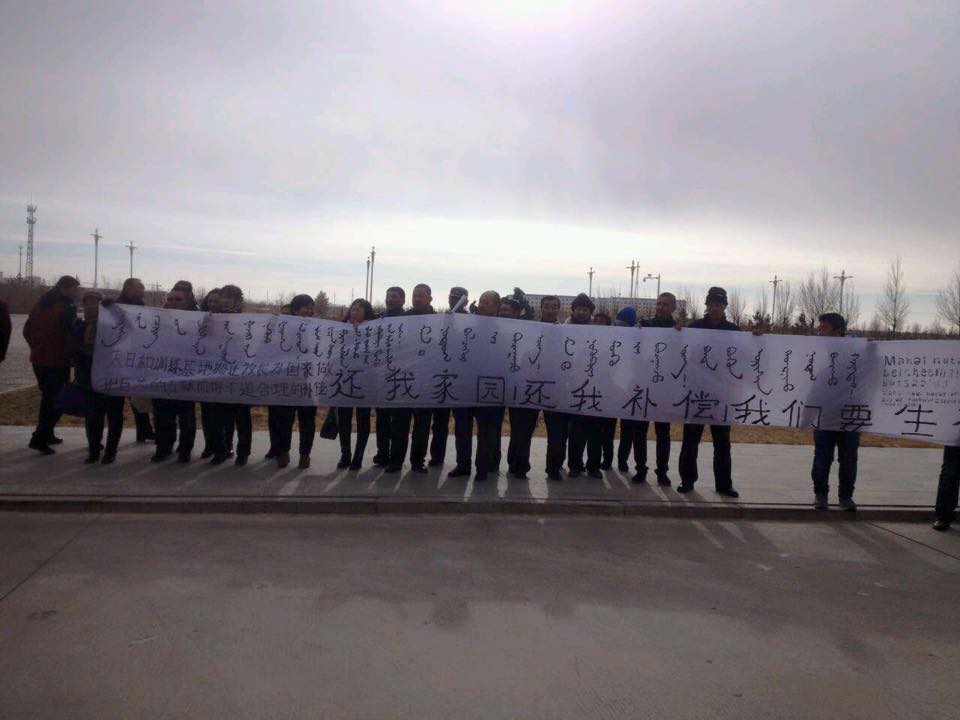 |
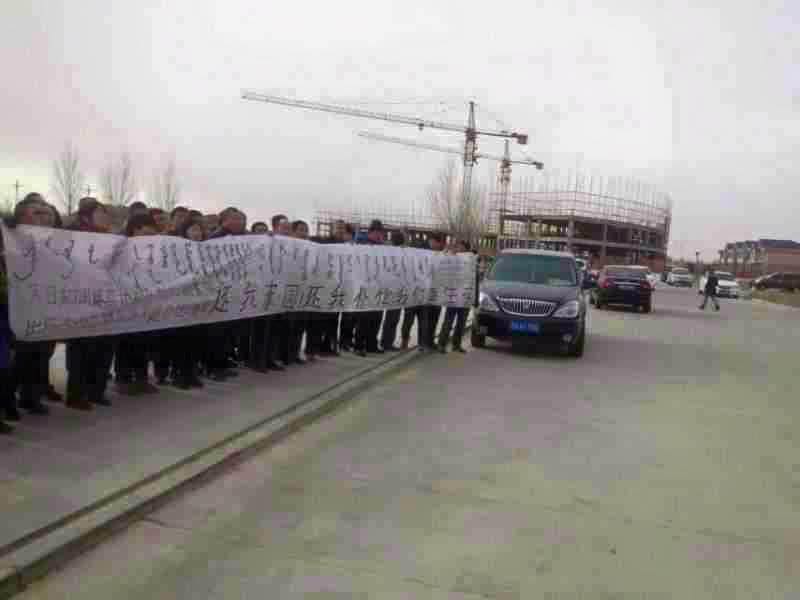 |
|
|
| Herders protest in Beijing (2015-01-20) |
|
|
|
|
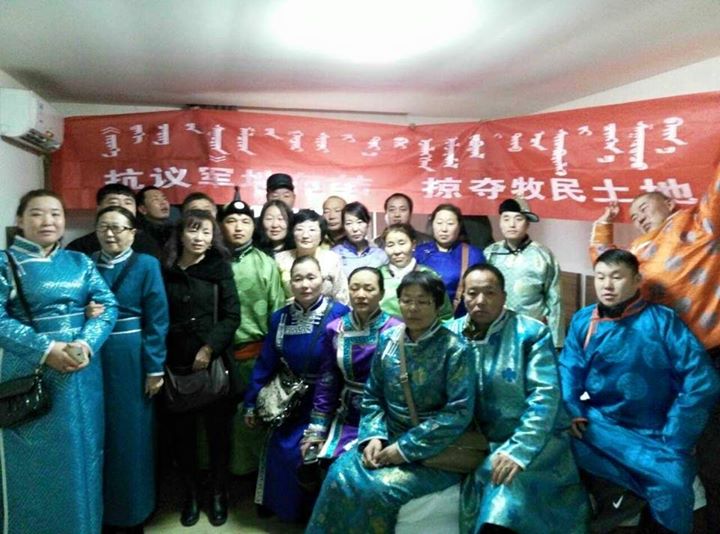 |





 Beyond
Great Walls: Environment, Identity, and Development on the Chinese
Grasslands of Inner Mongolia
Beyond
Great Walls: Environment, Identity, and Development on the Chinese
Grasslands of Inner Mongolia China's
Pastoral Region: Sheep and Wool, Minority Nationalities, Rangeland
Degradation and Sustainable Development
China's
Pastoral Region: Sheep and Wool, Minority Nationalities, Rangeland
Degradation and Sustainable Development The
Ordos Plateau of China: An Endangered Environment (Unu Studies on
Critical Environmental Regions)
The
Ordos Plateau of China: An Endangered Environment (Unu Studies on
Critical Environmental Regions)